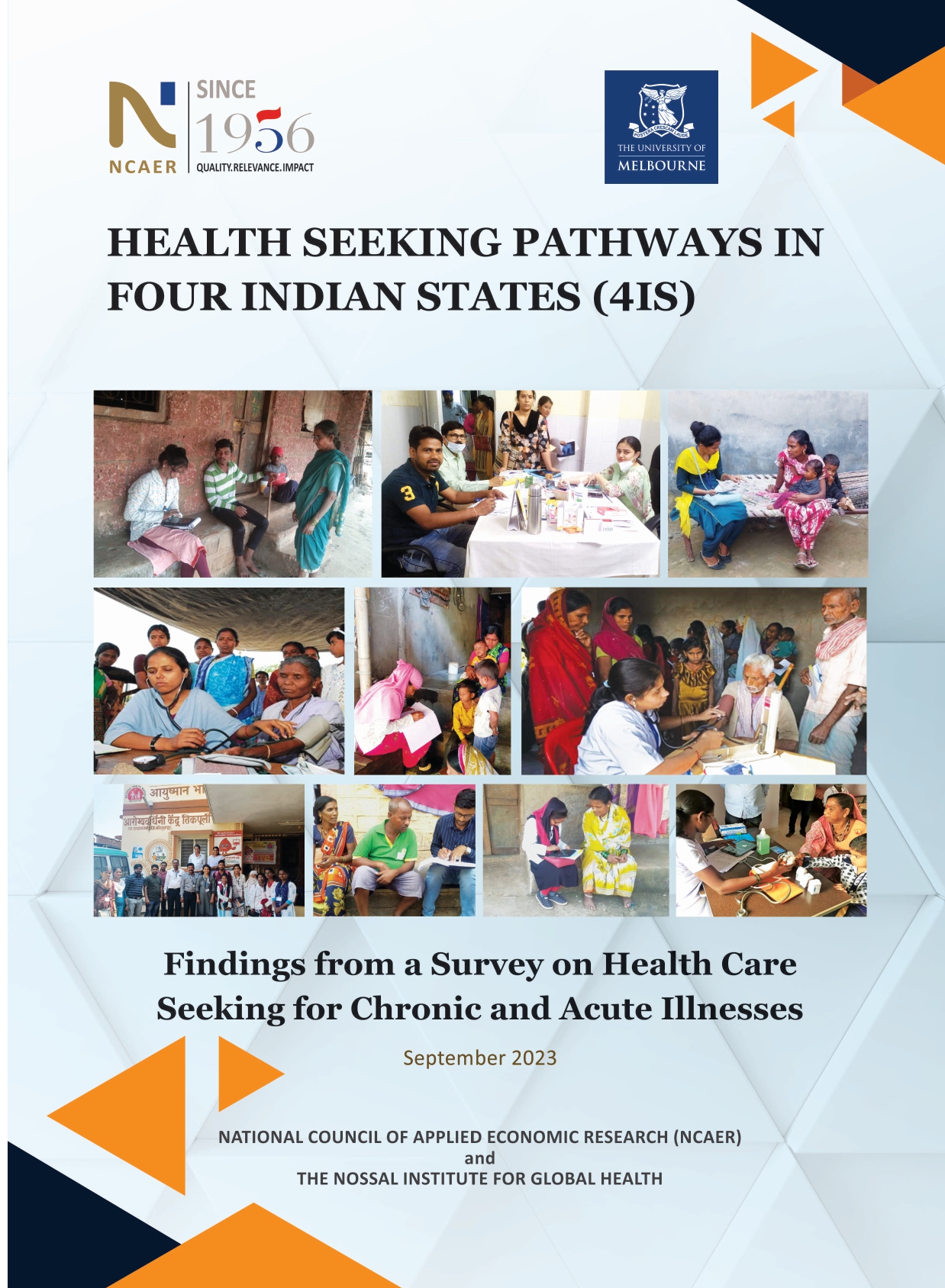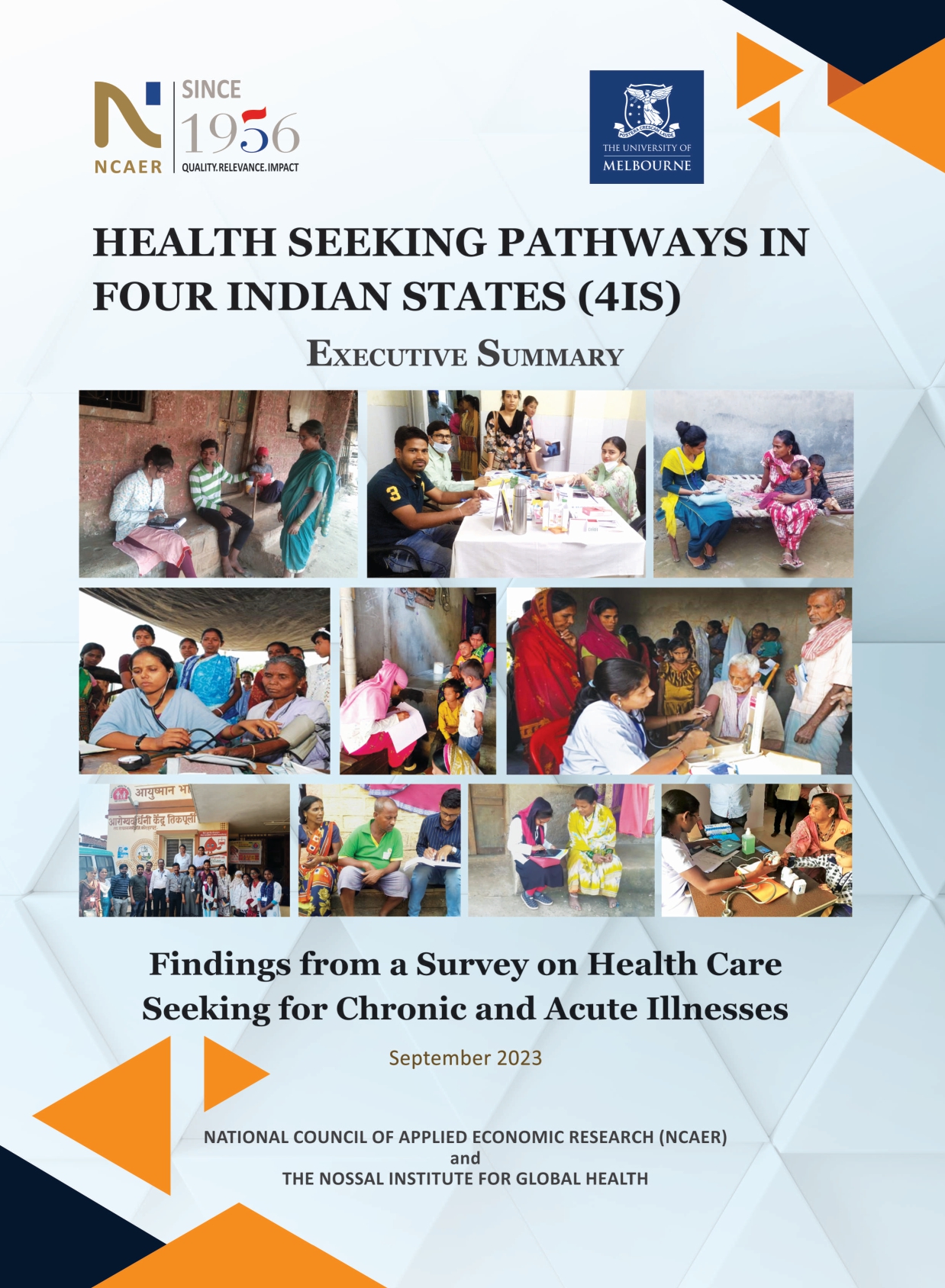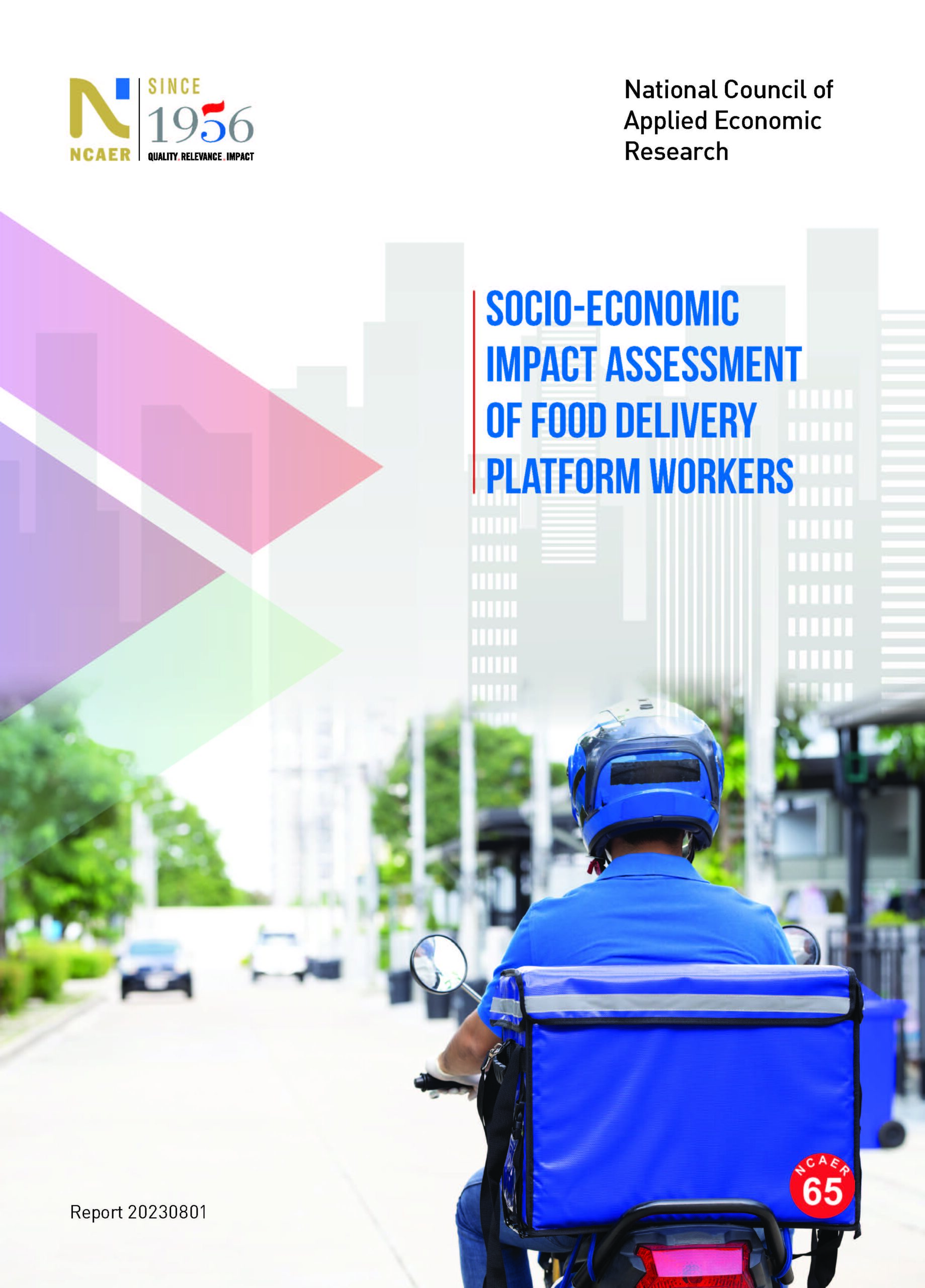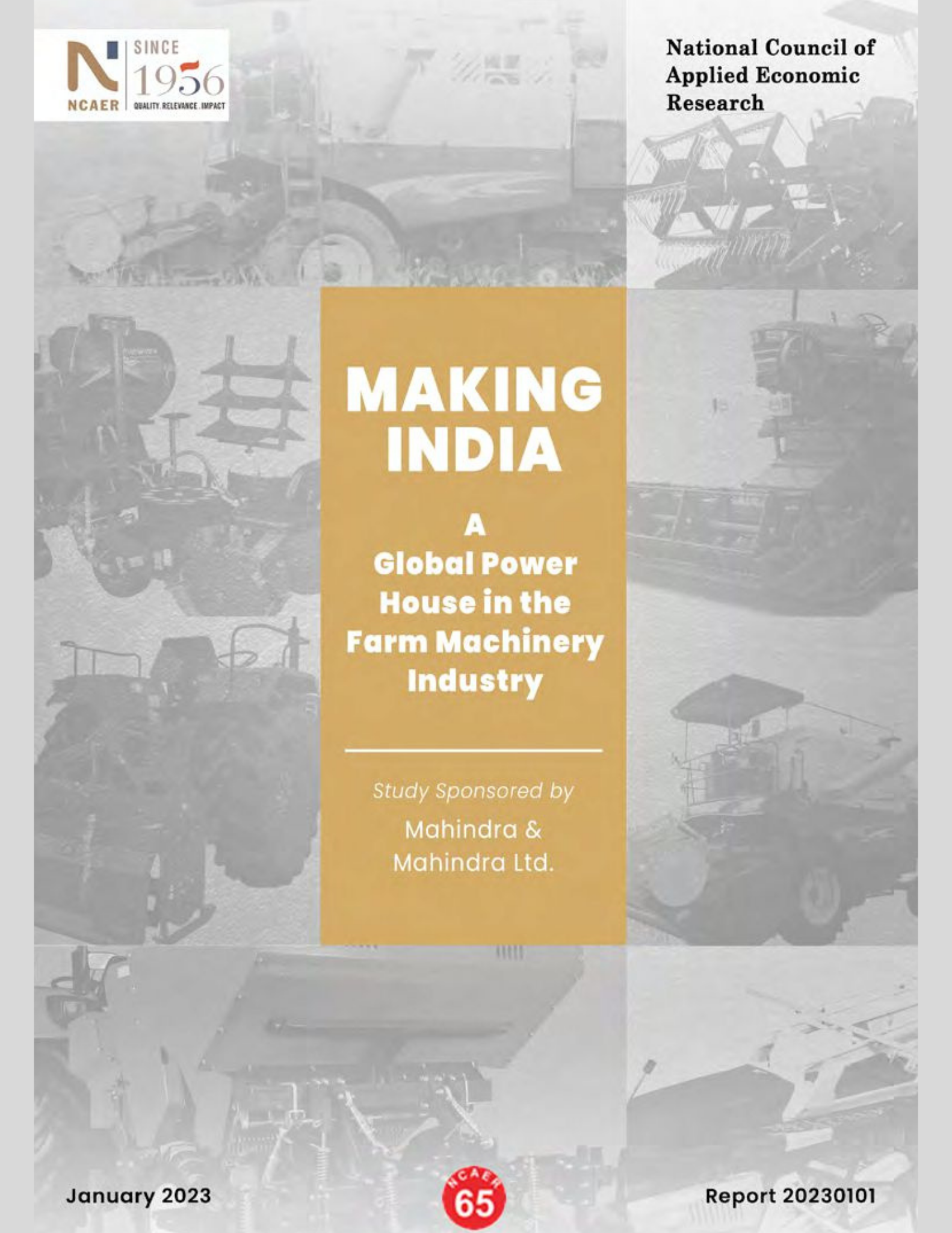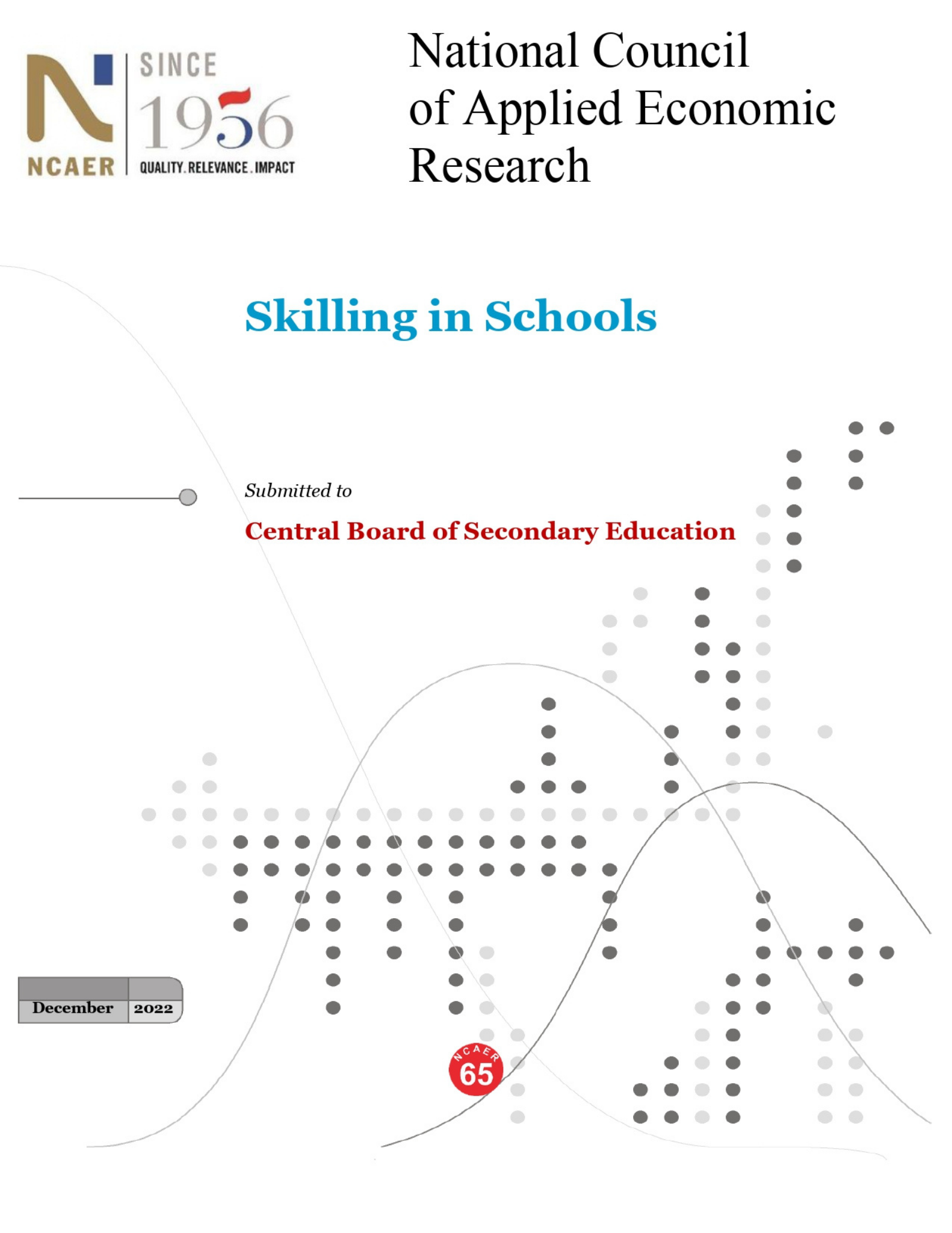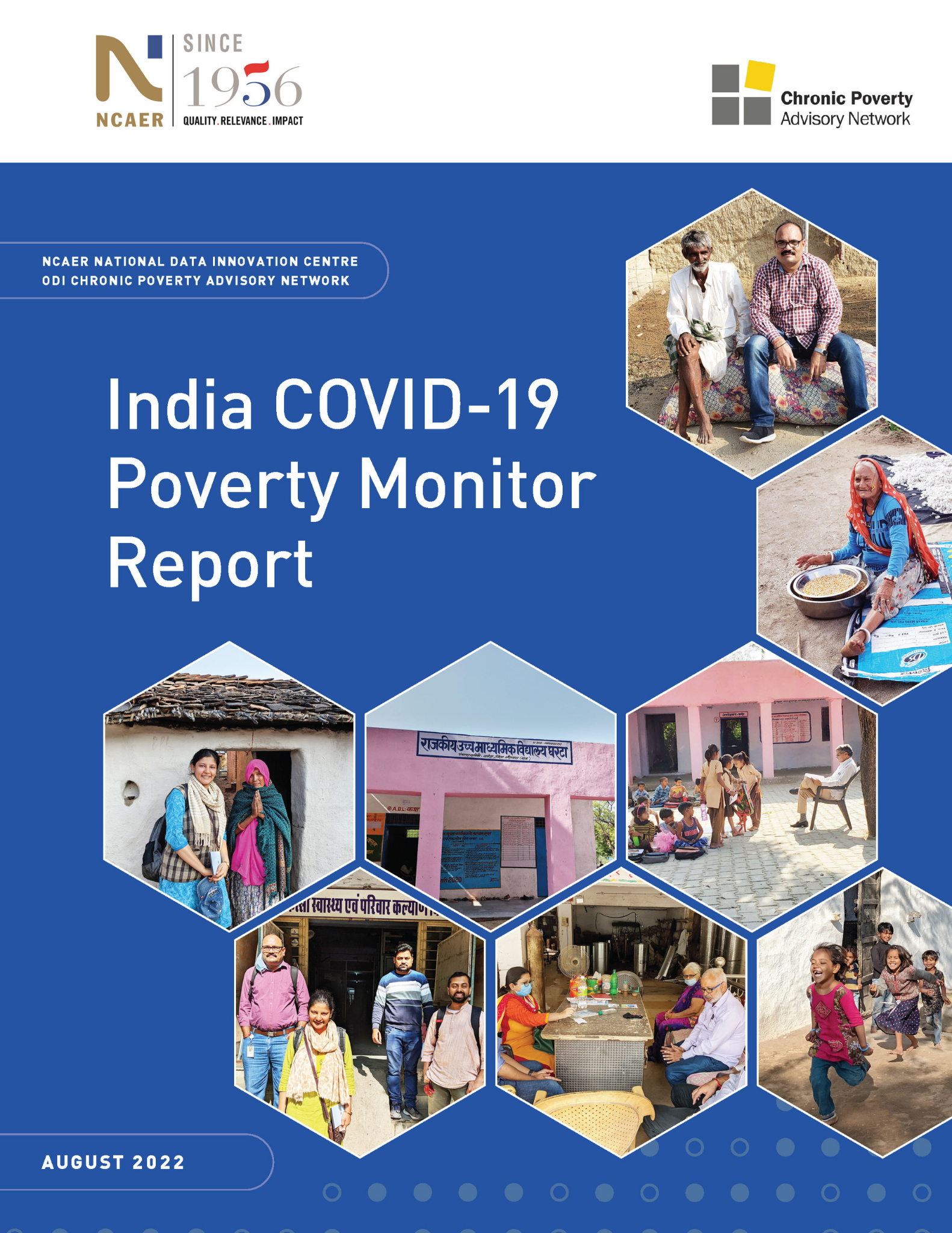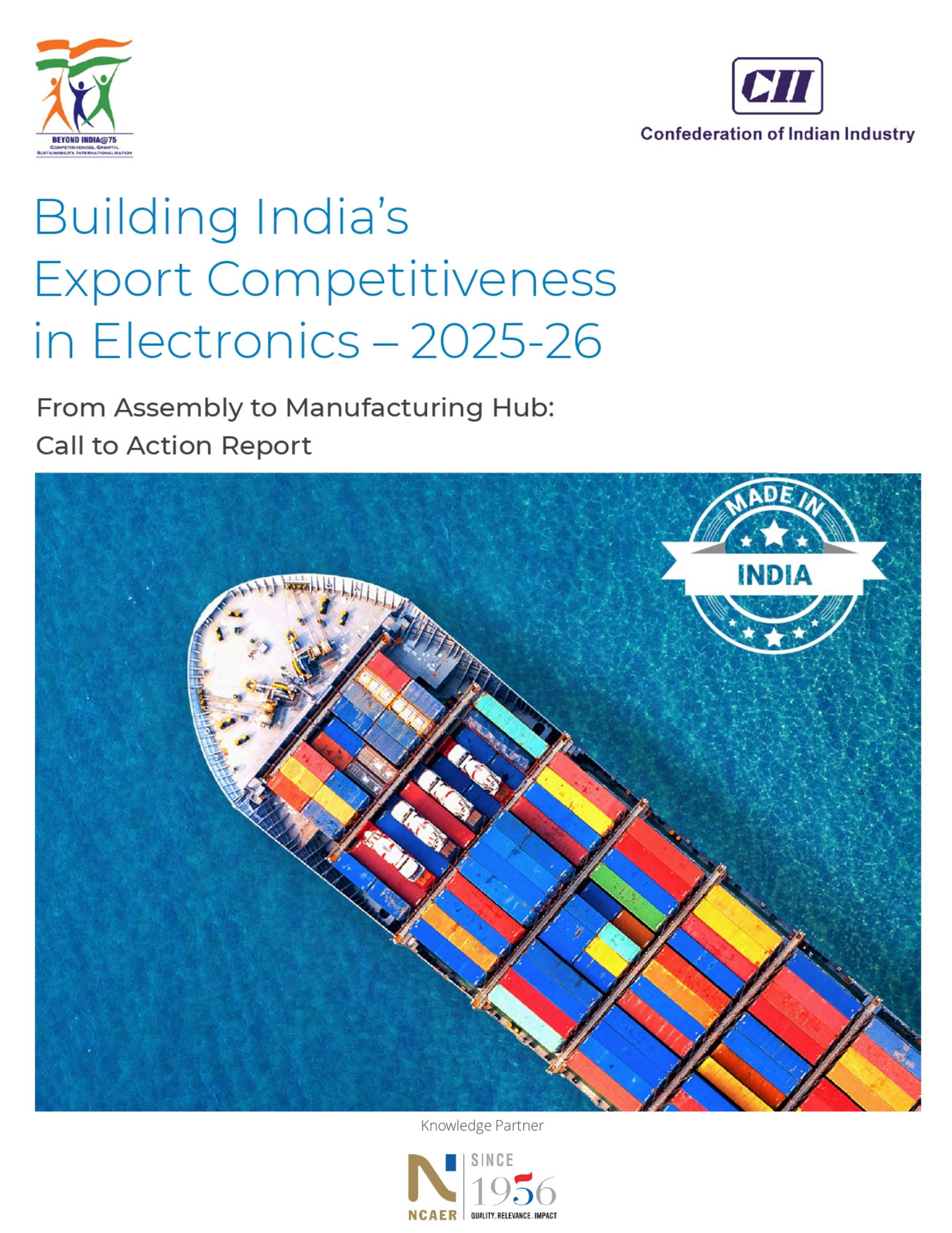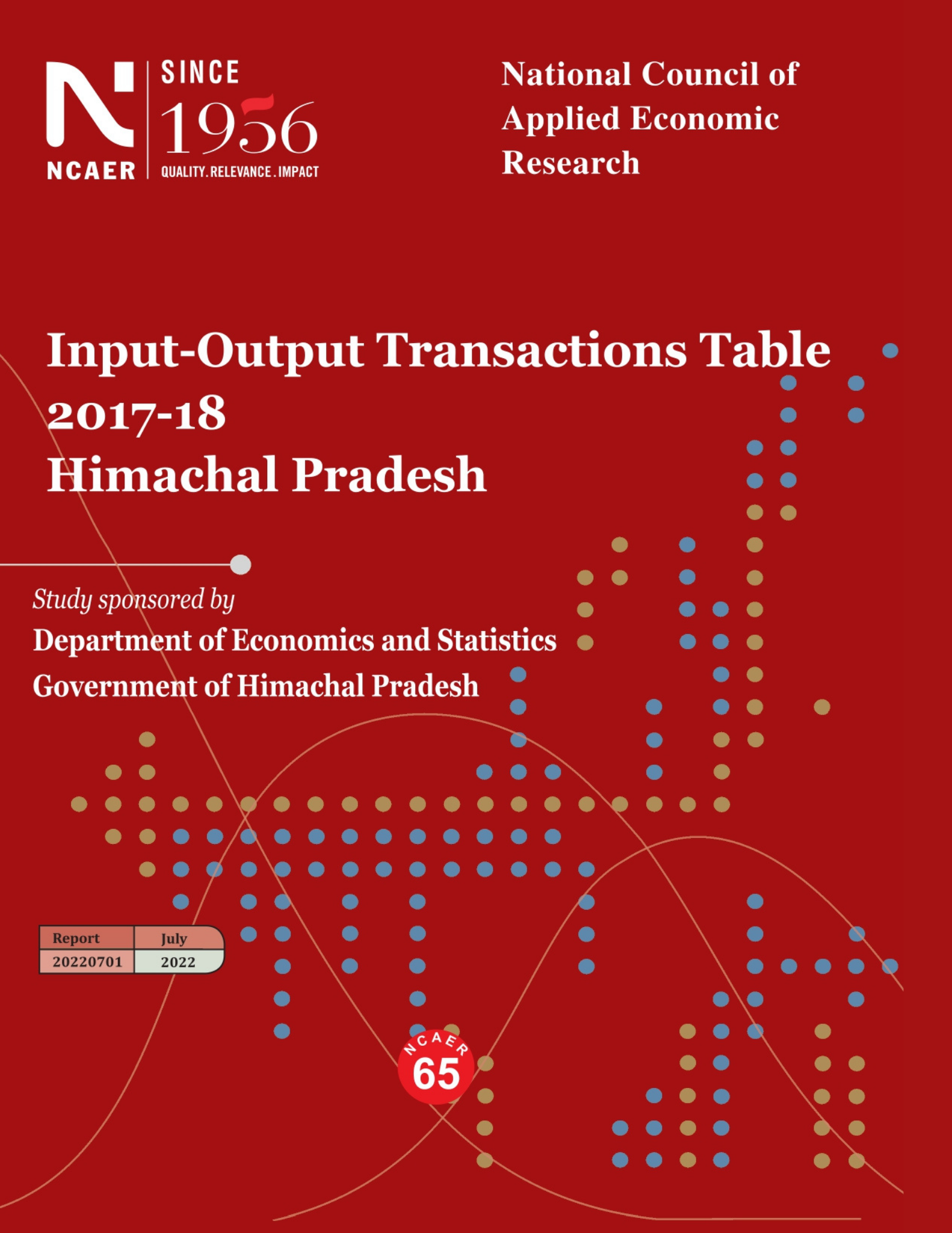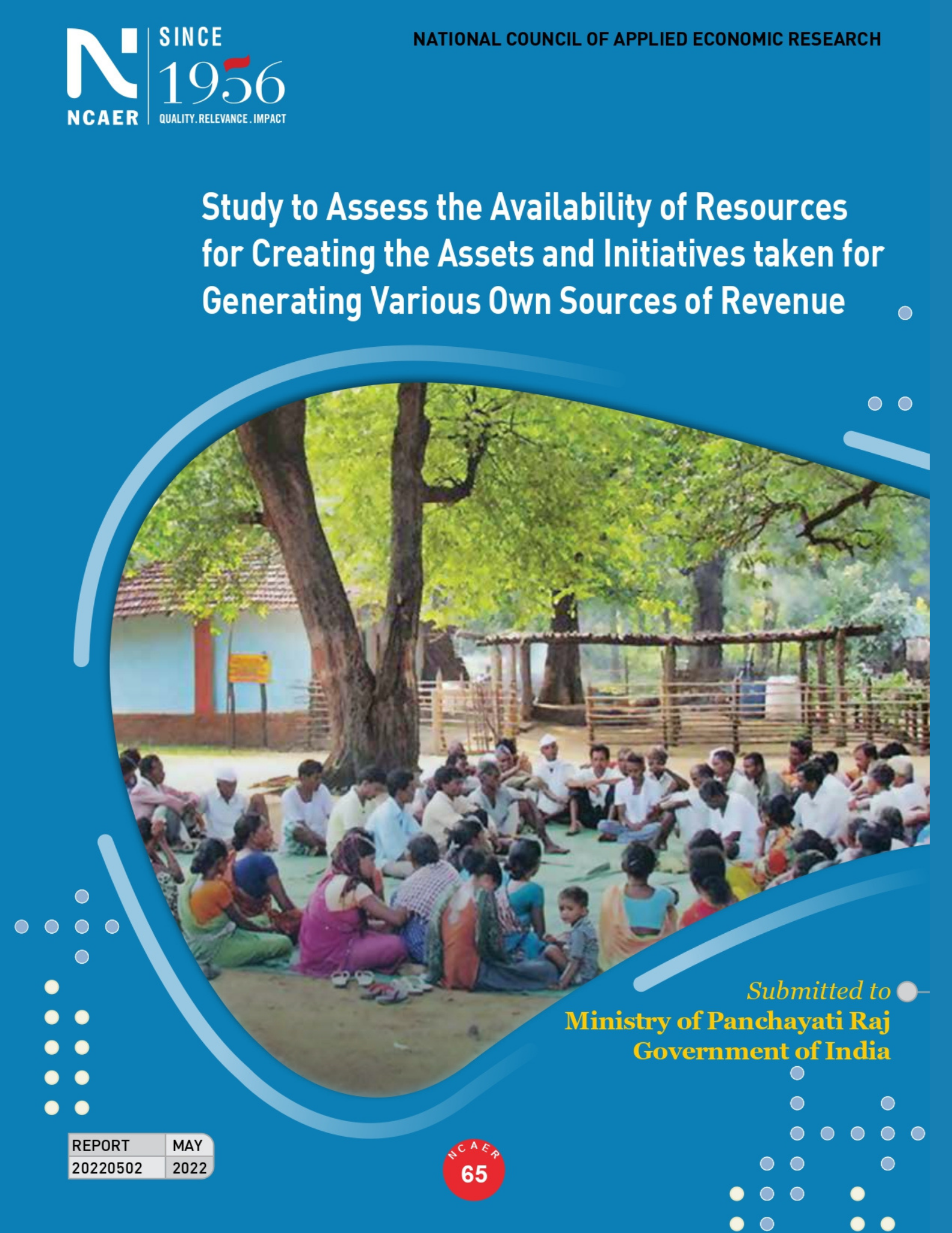Bornali Bhandari
Gautam Kumar Das
Samarth Gupta
Ajaya Kumar Sahu
K Subbaraje Urs
Nishika Pal
Karan Raj
August 2023
This report, the first output of a three-part research programme undertaken by NCAER extensively explores the socio-economic implications of workers engaged in the food delivery platform industry, shedding light on their employment patterns, incomes, and work environment. Parts two and three of the research programme reports, to be released subsequently, will evaluate the socio-economic impact... Read More
Download PDF






